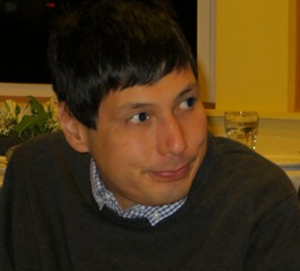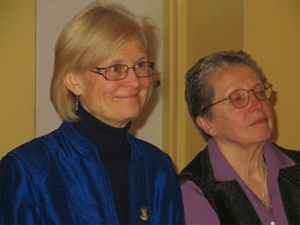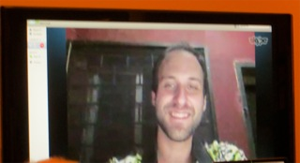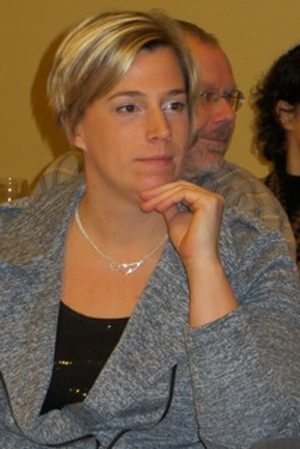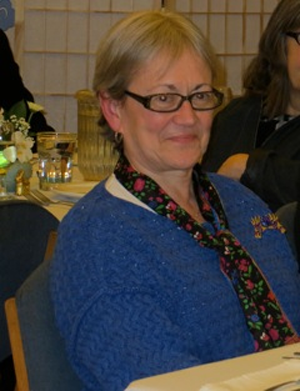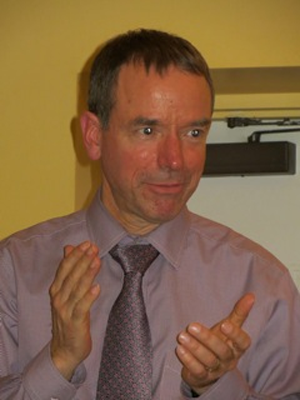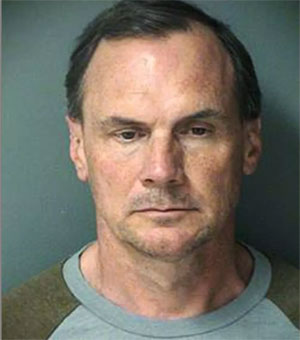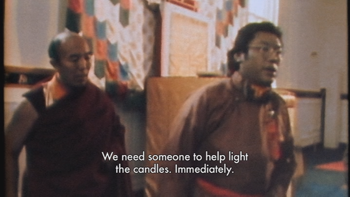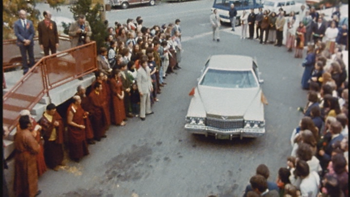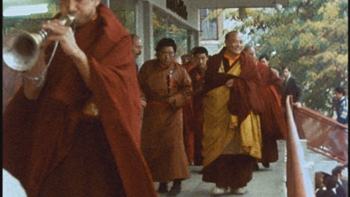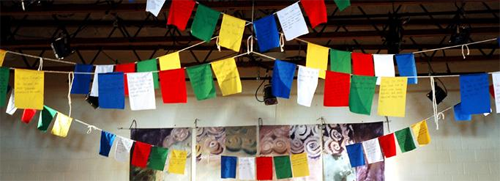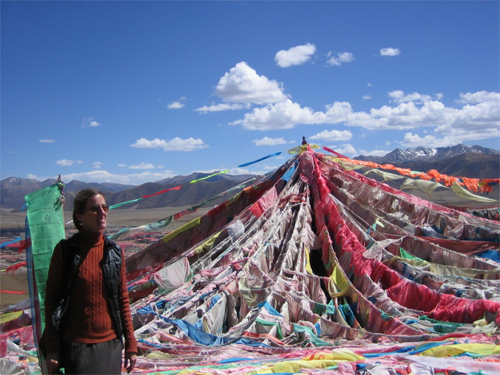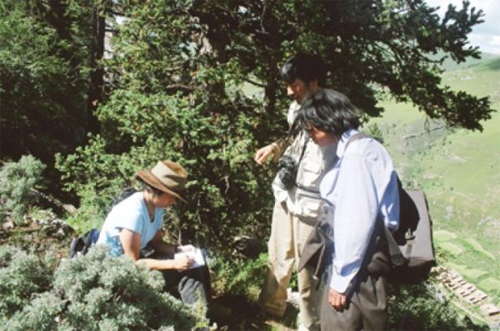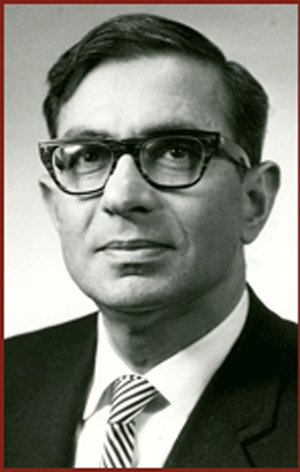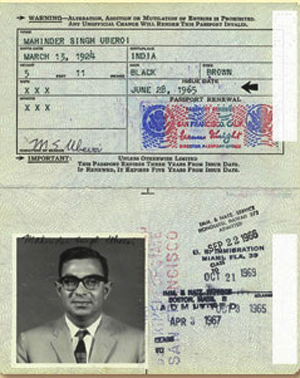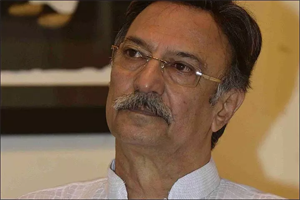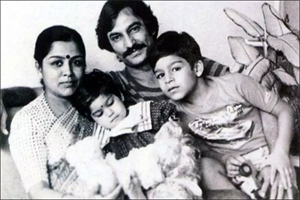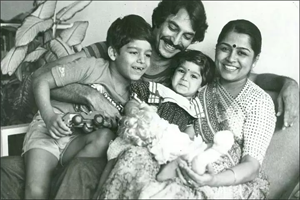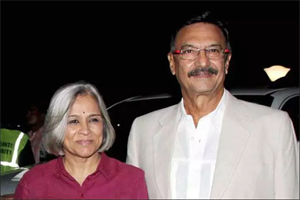Interviews: Bob Halpern cuke pageCrooked Cucumber: The Life and Zen Teaching of Shunryu Suzuki
by David Chadwick
June 11, _____
NOTICE: THIS WORK MAY BE PROTECTED BY COPYRIGHTYOU ARE REQUIRED TO READ
THE COPYRIGHT NOTICE AT THIS LINK BEFORE YOU READ THE FOLLOWING WORK, THAT IS AVAILABLE SOLELY FOR PRIVATE STUDY, SCHOLARSHIP OR RESEARCH PURSUANT TO 17 U.S.C. SECTION 107 AND 108. IN THE EVENT THAT THE LIBRARY DETERMINES THAT UNLAWFUL COPYING OF THIS WORK HAS OCCURRED, THE LIBRARY HAS THE RIGHT TO BLOCK THE I.P. ADDRESS AT WHICH THE UNLAWFUL COPYING APPEARED TO HAVE OCCURRED. THANK YOU FOR RESPECTING THE RIGHTS OF COPYRIGHT OWNERS.
ROBERT HALPERN - Green Gulch Farm, June 11, 3:05 -later more at my house in San Rafael and more on the phone. Robert now lives in Halifax.--DC
See photos of Bob below
I went up to the Bay Area in 65 to a Yasutani sesshin and my friend wanted to stop at Bush street and meet Suzuki Roshi who I hadn't heard of - so I went there with him. Katagiri had just arrived [in 64] and he took us upstairs at Sokoji and Suzuki Roshi took us into his office and he sat there with the three monkey statue near him - see no evil etc. - with his hands behind his head - that theme was a favorite of his - he liked to collect them. A number of people gave him those because they knew he liked them. I heard him say more than once that was one of his favorite themes. He entertained us and told us Dick was trying to find a practice center in the countryside. Dick had been talking about it - founding a practice center to have more strict practice and he said he was perfectly content on Bush street but if they wanted to do it, his students, if they insisted, he would do it - but he himself didn't see any problem with the way things were going.
DC - Interesting - Dick always said that Suzuki Roshi did it because he felt that people just weren't getting it, that only Dick could practice in the city and that he needed it for others. But whatever he said to you at that time might have been intended more to encourage you to accept city practice which was all there was then - to say it's okay here now.
As a matter of fact he specified that Dick was insisting.
He'd flip back and forth from Dick to they.
He was less magnificent, so much more ordinary and frail, not sickly but small and didn't have a gruff voice like Toshiro Mifune in the samurai movies. I'd only met Yasutani Roshi who screamed and ranted and raved and bounced up and down - he was more vital then - when we saw him at Tassajara a couple of years later he'd aged a bit. Suzuki Roshi was 20 years younger than him and I expected him to be a lot more vibrant - but he was so gentle and soft-spoken. He didn't sit in lotus, in a samadhi pose, he sat in a chair western style with his legs crossed like men do here. he wore tabi - obviously afraid to get his feet dirty and he didn't have enough hair on his legs - seemed unmanly to me.
Then I went back to LA and invited Yasutani's translator, Maezumi sensei, to leave Zenshuji to start a Zen Center to teach Americans - so then I went to live with him - at the newly started LA Zen Center and shortly after Suzuki Roshi was visiting Zenshuji for a conference of Japanese Soto priests in America and Maezumi invite Suzuki Roshi to dinner and made niku (meat) donburi or some such thing - and I fed myself vegetarialy at the table and Roshi said "don't you eat meat? and I said well, sometimes, and Roshi said, "oh, sometimes I eat rice." And he said it so smoothly that it didn't stop me. It shocked me only later when I replayed it. I wasn't embarrassed a the time. But later I realized what had happened - he had made fun of my small minded approach.
DC: You mean like not wanting to break the precept against eating meat?
And that he'd used English masterfully. Sometimes I eat rice was a masterful ironic way of making fun of what I had said.
It gave me pause for thought. By the time that the impact of having had dinner with him sunk in, I was starting to resolve to become his student. Even though we'd had very little conversation. At dinner it seemed that Maezumi was trying to impress him and to get him politically on side and all that.
DC - It certainly didn't work.
That's right.
So then I decided to go up to Suzuki Roshi and closed up the Satori Book Shop and Gallery on Sunset strip [Robert was one of the first people to sell the psychedelic posters for the rock concerts of the day - he sold that part of the business to Bill Grahame.] and go up to do a sesshin later that year - about a month later. I went in Friday night during the movies and just lay down on the tatami in the zendo so I'd be there in the morning but he got up early to go to the kitchen and came over and woke me up and he said you're not supposed to be here and I bounced up into some sort of correct posture and bowed to him, my new master and double-talked some gibberish and so he took me in and gave me tea and then the sesshin started and I had a Japanese type brown half-skirt, my sitting uniform, my way-seeking mind uniform, and he looked at that ridiculous thing my girlfriend had made for me and so I sat there - later on when he told me not to study with Maezumi, when Maezumi came to the opening of Tassajara and he asked me to come help him with sesshin, cook or administrate or something and Suzuki Roshi refused permission for me to go and told me that if I didn't think there'd already been a change I should try to reflect on how incredibly arrogant I was when I first showed up. I'd be wasting my time to go back to that place where nothing had been accomplished but a lot of arrogance. I hadn't been there very long but in any case so what happened and then I didn't move immediately but started to commute on weekends and things like that - stayed in the flat where Jeanie Campbell lived. It was the first communal living space. She talked to Suzuki Roshi about developing it that way.
DC: So did Claude.
I thought of myself as a macho sitter so I applied to be in the first crew of Tassajara - you were already there - in spring of 67. I lived on Bush street for a while with out a job and hung out and sat for a while.
DC: The first I remember of you, you were on the deck by the kitchen at Tassajara - I think you had hiked in - did you?
I don't know.
[Bob Watkins says he did]
When I went to Tassajara I felt I was already a member of the sangha, that I already had Dick Baker as an enemy - you have to be a member to be on his demerit list. [He tells about how Dick gave him some posters to put up in LA for the Zenefit and how Robert had not put any up when he was there.] -
Seems to me that before the first training period started that I finagled and pushed my way to be on the rock crew with Suzuki Roshi - no matter what I was assigned to - I ended up on the rock crew. I'd help him pick out rocks in the creek I tried to stick to him like a glove. Until Phillip Wilson showed up I'd get the job. And then I'd even usually get that job with Phillip - we made that our niche - we wanted to be special. In one paragraph Phillip would call him Reverend Suzuki, Suzuki Sensei and Suzuki Roshi, Roshi, get all mixed up
I used to stand outside his cabin hoping he'd come out so I could be with him - I developed a kind of father complex - looking for his approval and all that and I would pat him on the back and do things that others were too shy to do. I got into a warm cocoon of relating with him - got into that hi Roshi pattern. And I would try to drive him as much as I could and Mrs. Suzuki would tell me to drive him someplace because she didn't trust Dick - she thought he drove too fast.
DC: Same with me
And behind Dick's back I would reinforce the image and tell her that he usually drove over a hundred. I really slandered him. Roshi must have never snitched on me cause I was a terrible driver and I would fall asleep while driving and he'd start working on my neck
DC: Same with me - once driving him to Stockton to Dan's parents place for a Quaker meeting I was falling asleep and Phillip was in the back seat and kept asking me if maybe he shouldn't drive and was worried that I was going to kill his teacher. We were always so tired from getting up early and going to be late.
We fell into a roll that if he was going to a Japanese person's home one of us would drive him. If he went to get antiques he might take Silas. We went to the house of the guy who's daughters were Rumi and Kumi.
We went to a wedding or a funeral or something and I had a couple of drinks and was enjoying and relaxing and I thought that was my function - that he liked me cause I could talk freely with them and be friendly and he came over and said to me with a roar "You're drunk!" and I wasn't drunk but that was the first experience I had with him that showed he expected something of me - improvement or growing sense of discipline. He didn't drink but he never let on that he cared so I was surprised.
Later at Zen center housing when Jeff B. decided he'd go around naked - he was trying to be real to communicate and took off his clothes and I was Claude's assist. as head of ZC housing. Suzuki Roshi said we had to talk to Jeff because if he saw him he'd have to banish him forever. That was a surprise to me - it seemed he was saying he had an uncontrollable temper that most people would never guess cause we were so masterfully tamed and he was so sweet and gentle.
Another time I saw him bark the same way with his wife when he came home for the hospital when he had that throat coughing thing - 69? He'd had a long stay in the hospital. After that he was laid up in his room and for a couple of months it seemed we'd be sitting in the zendo and as we sat we'd hear him coughing through the whole period - repeated coughing. When he came home Okusan told me to carry him on my back upstairs, piggyback because he was weak - and he growled at her that he was not going to be carried like a grandfather - that's how they carry the old in Japan when they're crippled. He really lashed out at her.
Once at Sokoji I thought I saw a miracle. Siddha (supernormal) - a side product of practice. He wanted to get up into the ceiling at Sokoji through the hole in the tall ceiling so I went to get a chair from the kitchen table - he was just over in the alcove where things were stored. And I was thinking of putting a chair on a table - and I turned around and he was up there. It was an extraordinary gymnastic feat. How in the world could somebody less than 5 foot tall leap up there - off the kitchen table in the hall way out there - and I was really shocked - he was going up there to see how much the pigeons were infecting the attic you know the cooing we'd hear - quite a racket - in cooing or mating season - he wanted to go up and check it out. I thought of that when later he told me that instead of manifesting as a big dragon that he also had a dragon but he kept it little and in his kimono so that people couldn't see his dragon. He had a secret dragon - he said that in his office not long after he flew up to the ceiling. I think he was telling me about not trying to be special in other people's eyes.
Later I saw another miracle at Tassajara when we were building a retaining wall in the little creak by the bridge. Mike Daft was down there and Roshi was watching him build the wall down below and Suzuki Roshi picked up a fifteen pound rock, a small boulder, and he threw it over the bridge towards Mike's head and as it was in the air he said "Mike!" who looked up and caught it - a very unusual occurrence that remains with me to this day.
DC - I've heard similar stories. Jumping in the tree and onto the back of the dump truck flat footed. Maybe it's a Japanese thing - Arthur Okamura used to amaze folks at Smiley's bar in Bolinas by jumping up on the bar flat foot from the floor.
Ask Phillip Wilson how he'd move rocks. He had pretty good strength considering he was a frail man in his sixties - and occasionally he would do things that just didn't jive - because he had that bent finger - and without putting any weight behind it, he'd move a rock with his hands instead of with his body. In working with rocks you have to get close up - you can't just reach up with your hands and move them so his way of working was a little surprising - but basically he was straightforward. It wasn't miraculous but something nagged at me that he had a special relationship with these rocks because they moved around when he felt like it.
Phillip and I would have contests of strength - we'd act like complete show off babies and he'd fuel the fire and he'd ask on of us "isn't that one too big to move and we'd completely exhaust ourselves trying to impress him - he'd get an incredible amount of work out of us - or just let us play out our energy and I was quite amazed at working with him that he could do all this without drinking water - you know hot hot Tassajara summer The way we had to guzzle down water to work in the sun - he didn't want a sip - he didn't get thirsty, he didn't sweat.
In those early days before his private bath time was announced by Dick, I often used to bathe with him. I would finagle it. I would always make sure I took my bath at the exact same time that he did because I wanted to be around him. The first time he undressed in the hot summer he was wearing a wool haramaki (waist sweater) and I said what's that and he looked at me very directly as if to say that I'm going to tell you this just once - "I wear this every day no matter how hot it gets."
DC - Japanese laborers wear them but a neighbor of mine in Japan said they're for yakuza. We got them from SK Ueda in LA.
I've been through quite a few.
I remember he used to come back from the baths wearing a small white towel on his head. Then one day I saw him carrying a book like he was going to sneak a read. I stopped - I used to watch his movements as if my eyes could suck like a baby sucking at a nipple - that's the way I looked at him. Like I could get some key to the mystery of life by watching him. I wasn't the only one who looked at him that way. Anyway, the book was "Born in Tibet" - a guy named Frank had given it to him who came over from Scotland - huge Adam's apple. He'd studied with Trungpa Rinpoche in England and evidently Roshi was reading it and liked it a lot.
I used to try to impress Roshi. Before Reb came I used to sit in the seat right in front of him at Sokoji - the row facing the people facing the wall. One day I had a sleeping attack and he did his rounds and bypassed me because I'd automatically sit up when I knew the stick was coming around. He was up on the platform again and I was nodding out and he stepped down to hit me and I thought that's very compassionate and sat bolt upright and he went back up but then I fell asleep again and that time he leaped down and whacked me a few times. I thought what a blessing - now I'll be completely wide awake - although I've disturbed my teacher's own chance to practice he's blessed me with this lighting awareness in which I'll be able to penetrate in the deep zzzzzzzzzzzzzzzzzzzzz. So then he came down and whacked me harder and harder and didn't leave and I fell asleep and it kept going like that till the period was over.
Remember when we used to bow to him after sitting - I used to compose how I was going to bow to him.
DC - I remember how a few times Loring took acid right before dokusan in sesshin - so he'd be peaking when he met Roshi.
He liked to walk - he was so natural- completely unaffected - but still when people were looking he'd tend to walk in shashu (shashu is hands together and the solar plexus) but when he was by himself - like going to visit that Christian friend of his who had the antique store down on Webster street - he'd sometimes walk with his arms straight and out a bit and with his palms to the front - hitting the air - I don't know why he did it that way - if he liked his chest to be open - an unusual posture you don't see people normally doing.
DC: He used to walk casually with his arms at his side all the time, even at Tassajara - that's what I remember.
Around that time there were the riots in the Filmore and we told him he mustn't go.
DC: We went over and told him he should get out of the neighborhood - there was rioting in the streets and we were worried about it spilling up into our area and had fears of angry blacks streaming into Sokoji breaking into buildings and killing people and we told him and Okusan they should leave and he said no, black people like me - they like to put their finger on my head - they like to pat babies and Buddhas. In fact I think I'll take a walk up there and go visit them and we said no no no no! please no and he backed off - we said ok ok stay - but at least please don't walk up there.
Later in that riot, when it wasn't safe - he did take a walk - to go see his friend on Webster street.
I went with him a number of time to that shop like if he had to get a wedding present for a friend he might go back two or three times just looking to see if something would grab him.
He did go for a walk anyway, with relaxed confidence.
I remember a year or so later he was up late at night agonizing over a letter he had to right to his friend Yamada Roshi at headquarters, the vice abbot of Sotoshu. Suzuki Roshi was trying to resign from Sokoji and he wanted to write a letter and explain to them that he wanted to spend most his time with his American hippie students. He wanted to give them warning and he was agonizing over the letter and I said to him, if he's your friend why don't you just call him, and he made me feel like as a 20th century American boy I could augment the Buddha activity because it never had occurred to him he could do such a high tech thing and that it would make sense and wasn't a terrible waste of money and he treated me like I was a very clever person for thinking that one out and he made the call and his friend understood the whole thing and he didn't have to write the Japanese letter.
DC: Do you remember the time when he'd been sick? or maybe it was because he was going to Japan soon or - I don't remember, anyway we went over and caught him and he said "and while I'm in Japan I'm going to give Dick transmission, and then you'll have an American priest, teacher," and he seemed so pleased to say that and we went WHAT?! and you said "Suzuki Roshi, if you give Dick transmission, EVERYBODY's gonna think you're crazy."
Oh yeah
DC: And he said no no no sort of whiney and I asked does that mean that Dick is fully enlightened and he said no no no it just means he has a good understanding and a FULL commitment.
Right - commitment
DC: We couldn't believe it - we were shocked - and we weren't actually down on Dick like a lot of others.
We weren't in those circles.
DC: I told Kobun that in the office and he raised his hands up in horror like a monster was attacking him and went "no no no - maybe he's talking about Phillip." But we had such romantic ideas about transmission then which to most Japanese priests is like graduating from college.
Why did Kobun take it so seriously?
DC: Cause Dick and he didn't always get along - Dick couldn't stand the way students related to Kobun with awe as soon as he arrived even though there were Westerners who'd studied Zen a lot longer around there. We'd sit up late with him asking him about his enlightenment experiences cause he had a yellow robe and was Japanese. He spoke so slowly.
Waiting for his next vowel
DC: Remember when he was giving a lecture in the summer and guests came to it to hear a Zen lecture and he was staying up late studying and he spoke so so so very slowly - Kato says he does that in Japanese too - slowly but so beautifully - and there got to be longer and longer spaces between the words and then he was just sitting there and then he started to lean forward and then he started to drool and this long strand of drool went down into his mudra and woke him up and he just sat up and started talking slowly again.
I remember when the shit hit the fan and he lay in bed like he was sick day after day cause he'd had the thing with Evelyn Lentz. and Suzuki Roshi tortured him by making a rock garden right around his doorway and on some very hot days his door would be open to help cool his cabin down and he wouldn't even get up to take a pee for hours while we worked waiting for the end of work period. It was a kind of double-edged behavior for Suzuki Roshi to have - he kind of felt sorry for Kobun who wasn't feeling well but on the other hand he was needling him with this extraordinary hot claustrophobic breath of being right outside his door all day long.
DC: I was carrying the kyosaku one night in the zendo and I left, walked out and right up to Kobun's door and knocked and as he stood there I hit him gently on each shoulder with the kyosaku and he bowed and I went back hearing his door close as I walked off.
DC: I once was driving Suzuki Roshi and I asked him have you ever had a student who understood your teaching and he said yes and I said how many and he said one and I asked was it an American and he said no and I said was it a man and he said yes and I asked was he Japanese and he said yes and I asked what happened to him and he said, "He died." [I now think he may have been speaking of Nishinakama.]
He told me that he was very impressed with Trudy Dixon. Once after the Monday morning sitting in Mill Valley he said let's go visit Trudy and we rang the door bell and Mike answered the door and he had a cigarette hanging out of his mouth, unshaven and instead of jumping to attention like everybody does what he'd been through was so devastating walking someone through their dying when you're as young as he was and going through his own turmoils about his sexual orientation - and he just went oh hi Roshi and just kept talking there with the cig in his mouth dangling out of the corner and we talked to Trudy for a while and she was so interested in him and what he had to say and seemed to be equally interested in me. She was just interested in other people in how they were doing and how they felt and what they had to say - even though she was very ill with cancer - and so we left there and he said after he'd gotten into the car, "Now there's a real Zen master."
When his son Otohiro went into the army and he asked me to move into his apartment by Katagiri's across the street from Sokoji
Roshi asked me to vacate the apt so Trudy could live near ZC for the last few weeks of her life - I left my clothes in the apt and was crashing up the block and I'd go there after ironworking to take a shower and change and we used to carry Trudy across the street to meditate - lie on her back because she was so weak.
And I'd visit her and tell her whatever was going on in my brain and she'd ask things about it and I'd be so oblivious that I was talking to a dying woman that I'd sit there relaxed lying back in an easy chair and ask her to make me a carrot juice which would use up all the available strength she had for three days that she needed to sit.
DC: Yes I remember at Tassajara she had special food in one of the fridges in a bag marked for Trudy do not touch and you told me that you couldn't stop yourself from stealing it even though there was only enough for her.
Roshi and Rinpoche were talking in the dining room at Tassajara where they first met in 70 - his second visit [to America?] - and Rinpoche had his back to the creek and Suzuki Roshi was facing him sitting at one of those tables for eight people and the han started to go for Suzuki Roshi's evening talk and Roshi said don't worry, I've got about fifteen minutes before I've got to give my talk. And Rinpoche said, I know, we've got a system just like that in Tibet. And then they looked at each other and there was an electrified air of silence. A kind of nervous silence and then they started talking again except when they resumed talking it was in English. Evidently Roshi had said the business about I have fifteen minutes in Japanese and Rinpoche had answered him in Tibetan.
DC: Then how'd you know they said those things?
I talked it over with Rinpoche afterwards and I asked him what happened and he said I'm not sure, what do you think happened and we went back to the event but I never discussed it with Roshi
DC: But Roshi never said anything in Japanese
Well when I talked with Rinpoche it seemed the two of them had had a flash and flipped into some sort of family feeling - a different kind of environment - I'm trying to tell you the unusual things I remember I know he didn't speak in Japanese - that's why I remember it. This was a unique situation.
Rinpoche was brought into Zen center flat on his back like by pall bearers after throwing down a couple of fifths of Johnny Walker black label. He said, hi Roshi, I'm druuuuunk. And not long after that Rinpoche invited me to come to boulder and I said I had to talk to Suzuki Roshi about and he said "Oh he'll think it's a good idea and I was taken aback that he'd be so presumptuous but when I asked Roshi he almost cried. He said when I think about Trungpa it makes me think I want to tell all my students to drink more. He said he thought it was a good idea and he'd always opposed my crackpot schemes to go to do this or that. Once I left with you to go to Texas and he was opposed to it till I told him we wanted to visit the Hopi and your mother and grandmother and there were people in Texas interested in Zen. Once he saw it wasn't' just for entertainment or excitement he said okay.
DC: I never asked him about things like that - I'd just tell him.
Yeah - it's like the time that Jewish girl - Beverly - found a twenty dollar bill on the street and she was full of guilty type of thoughts about like what should I do with it, I didn't earn it, so she went to Roshi and asked him what she should do with it and he said give it to me without hesitation.
He said I couldn't go to Mexico to visit my old friend Juan with Alan Marlowe. He said no but when I told him that it would stop Alan from going to Tibet to live in a cave he said okay.
Ask Henry Schaeffer about Roshi.
DC: He stopped going to ZC because Roshi asked him to cut his hair didn't he? [I later did an interview with Henry.].
DC: In what way did Suzuki Roshi teach?
He was reluctant to comment on a persons practice very much so that when he did people cherished it and studied it like a koan - now if he did say something - like David you're too hard on yourself, you'd remember that forever. And you couldn't catch the rhythm of why he approved or why he disapproved.
DC: Like the time that you and I were with Trungpa screwing around and he was drunk of course at night after a talk and he said that our problem was that we were too serious.
Straight forward direct criticism of you was unusual and people would cherish it as the direct teaching.
He always apologized for telling us too much because he said it was much better to not say anything but I can't help myself, I've got to tell you the following.
I was in Toronto with Trungpa at Beverly Webster's? house and Kalu Rinpoche was sitting on the floor with his students, paying their respects, and Trungpa Rinpoche was sitting in his chair drinking a bloody Mary and Kalu was asking him how to teach Americans and they got up and did their prostrations and left and then Fran Lewis came in with a phone message from Yvonne that Roshi had advanced cancer and wasn't expected to live and before she finished saying it Rinpoche was crying blood, he burst a blood vessel in his eye or something and his tears were all pink and he cried like a baby who'd just seen their parents mowed down - there was no shock, just agony and he was really torn apart, couldn't stop crying and he said to me you go back immediately and I said I have so much confidence in Roshi he's a living buddha he's fine and you're completely falling apart and he said no he's your teacher you have to go and I'll come up in a couple of days and so I went and went immediately to Okusan to talk to her in the kitchen and Roshi came out to us from his bed which was evidently unheard of he wasn't seeing anybody at all - this was a low period and he was all purple and weak.
Remember how he did Dick's ceremony when that strength came from somewhere amidst the fainting. When I saw him there he kind of struggled out and he sat down and he said to me with measured breath, "How many of my students are with Trungpa?" and I was fumbling and said, "You look really good Roshi" and I told him I'd been at Rocky Mt Dharma center and there were about a dozen and he asked me how Rinpoche's health was and how his leg was and then I helped him back into bed and then I noticed there was this stack of get well cards off in the corner on the dresser but right to his bed was this big post card flipped around to the back with the writing showing no the post card was showing - a picture of the Rockies that I had sent from Colorado - a big postcard I'd said Dear Roshi and had drawn a picture of Buddha with a picture of Suzuki Roshi on one side and Rinpoche's teacher on the other side and said this is Rinpoche's shrine which was also Karmadzong at the time because we sat at his home and I said Rinpoche's shrine, love Bob. He was very intently interested in what we were doing there - he didn't say how are you? to me. He wanted to know how Rinpoche was doing. When Rinpoche came out a couple of days after he'd heard, I couldn't meet him at the airport but I went to meet him where he was staying that evening and I went in and he told me a little Boulder gossip and then he said "I had a really beautiful visit with Roshi today - I went from the airport right to his home and went to his bedside and we didn't say a thing, we just held hands for about three hours, we really didn't say a thing and he looked at me and he kind of puffed up his chest and he said, and I didn't even cry at all and then he started sobbing just like he had in Toronto and we couldn't stop him.
DC: But they did talk - I know because Rinpoche published it - in Garuda [which is on cuke]
Once Roshi was sitting on the floor front row center for Rinpoche's talk sitting with all the students and Rinpoche pulled his leg up, pulled it up to crossing as he sat in the chair till it fell down, and did that a few times and then he said "The open way is the title of the talk at Page Street" and he said "I'm not gonna sit here like a little righteous old man telling you what to do and what not to do "- it sounded like he was criticizing Roshi who'd tell people how to live - you should wash your hands after you go to the toilet you should handle things carefully, live mindfully and all that but he wasn't - there was this great love that went on between them -
I remember the first time he came to page street Roshi asked him to sit down on a sofa in the guest dining room and Rinpoche blurted out "in your tradition what's the difference between prajna and vijnyana[sp?]? because I'm a little confused having read so much emphasis by reading the English translation of Zen texts" and Roshi said just a second and he almost ran up the stairs to his room, very uncharacteristically, and he came back excitedly and he said what word was it and he looked em up in Sanskrit and saw the Chinese and said well for us prajna means this and vijnyana means that and Rinpoche said I'm so glad because that's exactly what it means for us and the two of them were quite happy about that the further discovery that both had the same sense of these subtle philosophical distinctions between things so then Rinpoche asked one of the people in his group to run out to his car and get the magazine called Garuda - the first Garuda - and Rinpoche who was well trained in oriental politics and had been to oxford with princes and hobnobbed with Nehru and the Dali Lama opened up the Garuda and said to Roshi and this is our center in Colorado and here you see this and this is what we're doing so instead of the usual diplomatic stuff he's all excited like a son showing his father what he'd done and Roshi was quite happy about the whole thing
Once I was driving him back from Mill Valley and I asked him if he thought I should give up smoking and he said weather or not you give up smoking you should always practice as hard as if you're involved with giving up smoking and then he said what did you ask and I said should I give up smoking and he said yes just to punish me for asking.
DC: Once we went to Bill Kwong's sitting and afterwards went over to Bill's for breakfast with Roshi cause he'd literally given us each like a heaping tablespoon of seven grain cereal or rice or something and afterwards we were all starving and went to a pancake house cause we were all hungry.
DC: Once you were sitting in the back seat, maybe that time, maybe not, and you asked him if you should quit smoking and he said that practice is pretty hard, it's at least as hard as quitting smoking, and you said did you hear that David and feigned throwing your cigs out the window and you might have done so but you smoked just as soon as he was out of sight.
I remember one time driving him to Tassajara he wanted to stop at the Monterrey zendo in someone's house - Ueno's, the priest - he remembered roughly how to go there but it was my first time and he was saying it's around here someplace - we were getting there very early so we could sit so we left at about three. And the sun was just coming up and he said stop and we got out and he looked up at the mountains and caught his orientation and he said go this way - he had a geographical sense of where he was in relation to the mountains, the Santa Lucias.
DC: So how did Suzuki Roshi teach?
He always talked to us about how impatient he was because he always used the most extreme utmost patience in teaching so his idea was that Dogen taught about returning the water to the river not so much by telling people that he did it but by actually doing it day in day out. To do it whether he felt like it or not.
DC: Definitely
And Roshi looked forward to days when he didn't feel like practicing because that's when he could make the message to us that you do it weather you feel like it or not rather that just lecturing us about that and that
Somebody asked Gandhi, my boys addicted to sugar talk to him to break him of the habit and he said yes I'll talk to him but wait a couple of weeks cause I have to kick it first myself.
DC: Can you give an example of how he taught by example?
One day I tried to make a point to him that I was a sentient being with human needs and desires so I said to him at dinner want to go so a movie tonight? and he said sure - Okusan's not here and a group of us looked at what was on and piled into my van and went to see 2001 and it was a second show and a long movie and it was in the South Bay quite a ways away and we got back very late and the next morning he was up for sitting
DC: I was there and during the movie he didn't say anything except to tell me to shut up when I tried to explain him something and afterwards he said, "Is that what LSD is like?"
And later he used that movie frequently in his talks - the monolith was like the Alaya Visnana - he refereed to various things about that movie
Looking back on it, it seems his mind was constantly seeking for ways that he could explain Buddhism in our own language
DC: Do you remember before the first practice period at Tassajara when we were sitting in where the zendo came to be before there was any zendo - with the big fireplace - you asked him, "Suzuki Roshi, there are various students doing things that actually don't seem to be an ideal part of the practice - like bathing together men and women or talking in the baths and it seems we need more rules and don't you think we need some rules here? And he said yes the broom over in the corner is standing on its bristles and it should be on the wooden butt and that will preserve the broom - there - that's your first rule. And that's the way Buddha's rules came about - not sitting around dreaming up rules but in response to actual situations. However, the next day he said that up to now we've had men and women together in the baths and they are a place to practice, to continue our zazen , second only in importance to the zendo and when we bathe together men and women its not really practice, it's social - so for now on men and women will bathe separately and the people like Jim and Bill and their wives who were trying to practice with us got mad and left saying it was too puritan for them.
He appointed me ino (head of the zendo) for Tatsugami's visit and I was completely undisciplined and he teased me afterwards calling me mistake ino Roshi. He said your problem is that you try too hard. after I'd screwed up breaking all the rules. He said everything would be fine if your not so hard on yourself.
DC: Yeah, Tatsugami told you that he knew what your problem was - that he'd had a friend like that and he got neurosurgery. You were crushed.
Suzuki Roshi said I'm not so Japanese anymore. Yoshimura is and more so Katagiri. They are typically Japanese whereas Chino sensei is more like you - a real unusual type.
DC: It was interesting how we could get him to gossip or comment on others. I remember once standing on the road with him and he pointed to a woman and said she's too serious and I wondered why did he say that to me - is it because I'm too serious? Why else would he try to tell me about somebody else?
He told me that he had a philosophy about children - that they shouldn't be taught - they should just be played with and he told me I should be involved with education when he gave me my Buddhist name and that he liked the way I was with younger people
Do you remember at the funeral? Well first all these honchos from Japan and America one after another with red robes - the vice abbot of Eiheiji or whatever went by his casket and Rinpoche walked up heaving in agony with the Tibetan white scarf and kept trying to put the scarf on him and he wouldn't go and it kept flipping off the casket and he was heaving with emotion and Okusan broke into tears who had been so composed through the ceremony and afterwards she in a hurried way ran upstairs to get his walking stick that he'd last used and came down into the hallway and gave it to Rinpoche.
He had his last visit with Roshi at San Francisco Zen Center a short time before Roshi's death; Rinpoche returned there for Roshi's funeral in December. During the ceremony, he went up to offer a khata, a Tibetan ceremonial white scarf. With one hand, he unfurled the scarf and it hung in the air and then draped perfectly, beautifully, over the casket at the same time that he uttered a piercing cry. -- Dragon Thunder: My Life with Chogyam Trungpa, by Diana J. Mukpo with Carolyn Rose Gimian
I used to drive him to Marian's house and there were usually about five people - it was in Marian's garage with a tiny group of housewives.
DC - I remember more like fifteen.
They showed movies at Sokoji in the big auditorium on the weekends and I remember Roshi saying that i resolve not to go to the samurai movies and then I hear those swords clashing and I begin to think I wonder why they're doing that I wonder what's going on in there and then I hear a couple of more swords clash and then I go in and I'm hooked and I stay for the whole thing.
Then I remember another time driving him down to Tassajara with some Zen monks from Japan and we stopped in a motel in Monterrey and they were watching TV ignoring it and chatting but when the commercials came on they were captivated by them
When he was tested for alpha waves by Joe Kamia he constantly slept during the test
DC: Rinpoche said that until he met Little Joe, the Peyote Road Man, Suzuki Roshi was the only sane man he'd met in America
Rinpoche said that after he left Tibet he never heard of his teacher again and he felt so sad and alone and then when he met Roshi he felt that he had a friend
He said that all the people supporting him in England were only making things worse - the whole Christmas Humphreys crowd.I asked Suzuki Roshi isn't it important what you eat and he said yes but it's more important how you eat and more important than that is how you sleep and he said it with his brilliant sense of irony and timing but he also said not to read before you go to bed
DC: He said don't drink anything before you sit zazen
No intoxicants - but his message about diet and all that was not to screw up one's synchronization of mind and body
I was worried that my parents might not approve of Suzuki Roshi when they came to Tassajara and he told me that I needn't go in and join them in his cabin. I was nervous waiting outside and it went on and on and on and I opened the door and my father and he were rolling on the floor laughing and my parents had completely fallen in love with him and my mother thought he was exactly like her father and he said to my father that they think we're old and they don't realize how young us old people can be. He said the only old one around here is the mountain. To this day my father quotes him.
He got angry at me once for making a disparaging remark about Alan Watts - I said his books were shallow and he said that was completely missing the point that what I should notice is that Alan watts books brought thousands of people to Buddhism.
DC: He also said that Alan Watt's was a great Bodhisattva - same thing.
He also got angry at me once when I told him I got a job iron working and he asked me how much I was being paid and I said 6$ and hour and he said that was no kind of money for a Zen student to make - however he did tell me that he felt that Dick should get a salary like a director of a corporation.
At one point Claude and I were worried that he was banking his $600 a month he was earning when he went on ZC salary and stopped taking money from Soto headquarters and we talked to him and Okusan and found out he was giving about two third of his money to charity without telling anybody. Like polio or united fund. The only time he'd spend any money would be if he bought a gift for a Japanese friend or something.
Once we were crossing a toll gate and he asked me to get a receipt for a quarter and he said I'm too old to learn how to take care of financial things but there's still time for you.
DC: Okusan said that he kept good records and was careful to distinguish between what was ZC and what was personal and that he never had time to teach Dick about that and that's why Dick didn't understand those things so Dick got confused about what was personal and what was ZC. But from what I saw, Dick was more special to him than anyone else and he left that sort of thing up to us. Personally I wasn't so bothered by Dick's spending. Maybe it got out of hand but a lot of it was for public benefit like his trip to Russia with the US Soviet friendship people. He didn't do anything carelessly, just not in synch with the students I guess - ultimately.
My impression is that he respected Dick's ability to manipulate the situation and ride heard as an administrator to keep the whole thing together. He liked his vision in that sense and to be quite the artist or as sensitive a person as Roshi was but that he well represented him in terms of catching the vision of how he wanted things to grow and develop so he felt quite good about him as a heart son in that respect.
Do you think that Suzuki Roshi planted seeds in his students that are just beginning to come to fruition?
DC: I don't know. I guess so.
I do. I think that anytime he said anything to anybody that they didn't understand that they kept playing it or replaying it and that late something would percolate. Later they'd see it meant something they never realized.
Suzuki Roshi couldn't understand everything people said and when he spoke extemporaneously it wasn't near as good as when he prepared - he'd tell us how forgetful he was but he could remember lots of words he looked up in the dictionary
What about Hoitsu?
DC: He has no inclination to do what his father did - he doesn't like zazen and Suzuki Roshi asked him to learn English so he could come over and help but he didn't want to. [Hoitsu has totally changed since then. - dc 5
Hoitsu studied kendo for many years and Sri Oribendo said the way East and West will finally meet will be in sports. Hoitsu got mad at me for bringing him gifts in Japan - he said you can come but don't bring gifts.
DC: Wow - that's what all Japanese do. He also gave me back a donation I'd left on his altar.
This is the end of the cuke interview with Bob Halpern.
Photos of Bob
4-04-11 - Had some fun exchanges with my dear old friend Bob on Facebook today and downloaded these four photos from his page. - dc
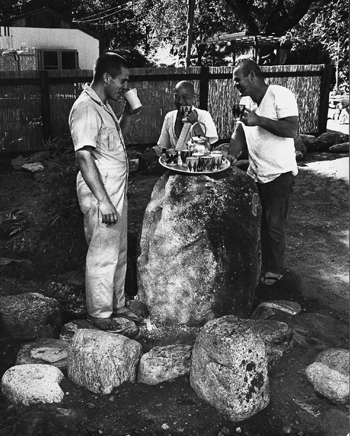 That's Bob, Suzuki, and Philip Wilson
That's Bob, Suzuki, and Philip Wilson 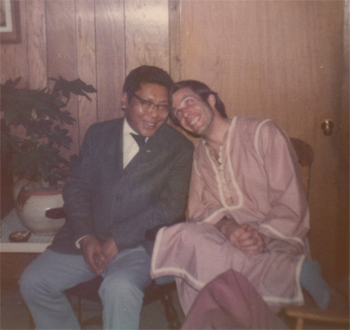 Bob Halpern with Chogyam Trungpa Rinpoche
Bob Halpern with Chogyam Trungpa Rinpoche[x]
This photo withdrawn by cuke censor: Bob Halpern with Chogyam Trungpa Rinpoche in the center at - I don't know, maybe a meeting of the Vajra Guard. They look like they're getting ready to invade someplace.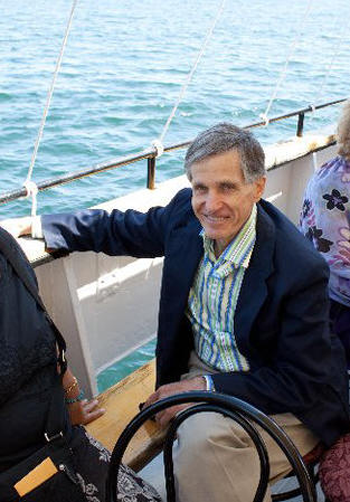 Bob recently. Hi Bob! - dc
Bob recently. Hi Bob! - dc
